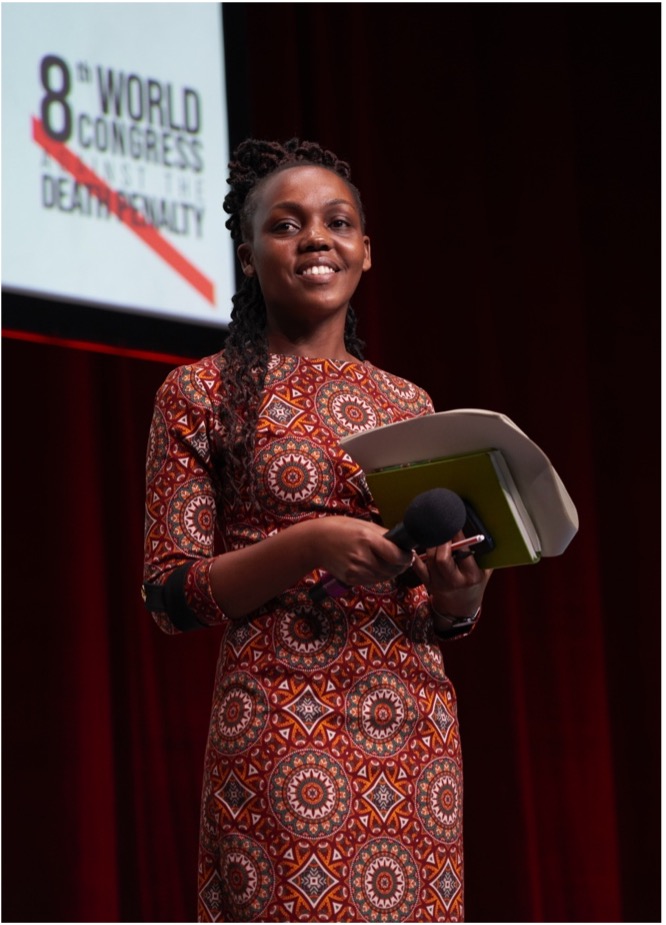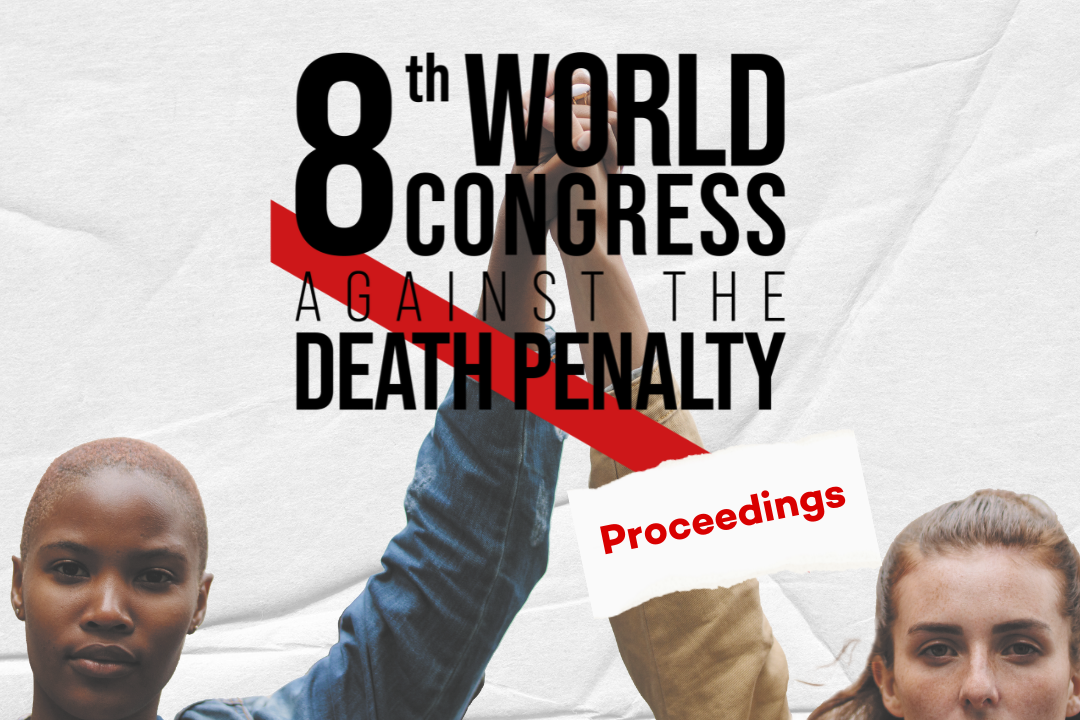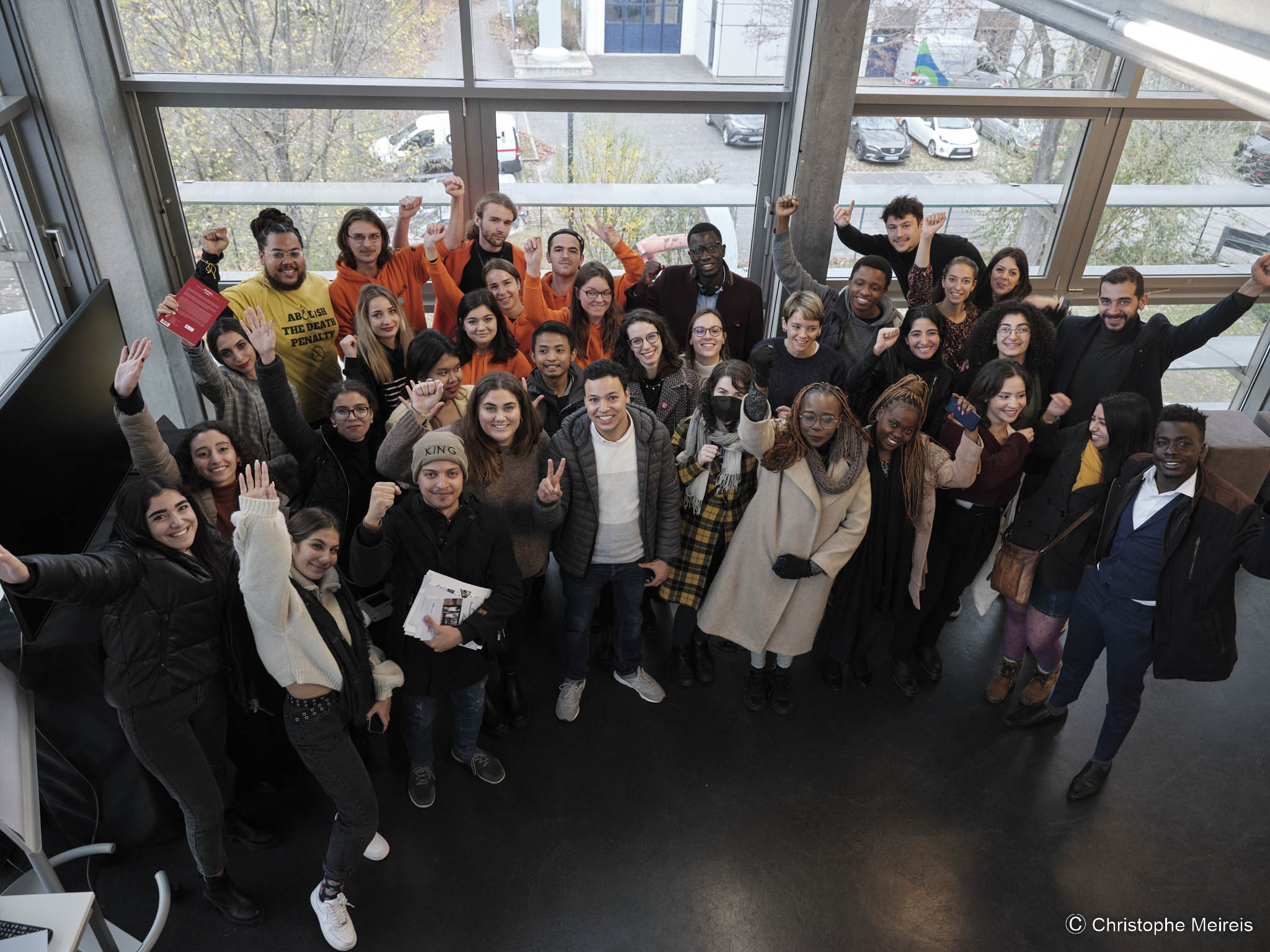
Ⓒ Photo: Christophe Meireis
Could you tell us more about your role within Crime Si Poa and the organisation’s mandate, particularly in relation to young people in Kenya?
Crime Si Poa® is a non-governmental organisation that seeks to inform, reform and transform the lives of young people by mobilising them to appropriate security, justice and socio-economic issues in their communities. Crime Si Poa® focuses on access to justice, information and opportunities for young people.
Our approach is based on the pillars of education, advocacy and social enterprise and is grounded in the belief that raising awareness and sharing knowledge as preventive measures can have an immediate impact on impressionable and vulnerable children and young people. Our focus is therefore on discouraging at-risk and vulnerable young people from engaging in criminal activity and tackling threats to peace through behavioural and attitudinal change, while promoting the benefits of a crime-free society.
As Programme Director and Legal Officer at Crime Si Poa®, I oversee the implementation of the organisation’s programmes and provide strategic legal support. I also lead a legal empowerment team of volunteer lawyers, law students and paralegals who teach communities about the law, their rights and obligations, thereby strengthening the rule of law.
Why do you think it is important for young people to get involved in campaigning for the abolition of the death penalty and to interact with more experienced abolitionists?
I believe that generally, in life, young people always have something to learn from the older, more experienced generation, and vice versa.
As far as the death penalty is concerned, until we achieve universal abolition, the abolitionist movement will keep growing. A younger generation of abolitionists will continue to emerge and join the movement, bringing great energy, enthusiasm and new ideas on how to propel the movement forward. However, without proper advice, guidance and structures, young people run the risk of becoming discouraged too soon and giving up or continuing to encounter the same challenges and pitfalls as their predecessors, which they could have avoided by learning from their mistakes and struggles and developing new strategies.
Interaction with more experienced abolitionists allows younger abolitionists to learn from those who have gone before them and to better understand the rationale behind the movement, the successes achieved so far, and to exchange notes and ideas on how best to take the movement forward. This interaction therefore allows for the growth, continuity and sustainability of the abolitionist movement, as the two generations work together on a more holistic approach drawn from their different experiences to fight for universal abolition.
What did you learn and feel during the preparation and moderation of the World Congress plenary session?
It was both exciting and a great honour to be invited to moderate the plenary session on the new generation of abolitionists.
In preparing for the session, it was interesting to learn and see how far the abolitionist movement has come over the years. As a young abolitionist, it was exciting to see the number of abolitionist states increase, reaching 110 fully abolitionist countries by the time of the Congress. The 111th abolitionist country – Zambia – pledged at the Congress to abolish the death penalty by the end of the year, and kept its promise on 23 December 2022.
I also particularly enjoyed the chance to interact with and learn from a host of established and new abolitionists, both during the preparatory phase and at the World Congress itself, and to share our vision for universal abolition.
As moderator of the session, I enjoyed the stimulating conversations with the various speakers and learning about their unique experiences in the abolition journey. From those who have been involved in the movement for over thirty years to those who joined just over a year ago, it was motivating to learn the reasons behind their commitment and to discuss their awareness-raising and advocacy strategies, as well as new ways of supporting the movement and promoting the abolition of capital punishment, including within other human rights movements.
What was your impression of the involvement of young people in the World Congress? Did it give you any ideas on how to involve more young people in your work?
The mobilisation of young people was fantastic. I think ECPM’s Abolition Now Tour project worked really well in this respect, because young people were not just participants at the Congress, they were actively involved and included well in advance. They were given a platform to meet and share their experiences and ideas on participatory abolition projects in their different countries and regions with other Congress participants.
Since the Congress, as we continue to fight for the abolition of the death penalty in Kenya, we have been working closely with the Kenyan Abolition Now Tour delegation on advocacy projects to show that young people too are and can be the voice for abolition and possible change in Kenya.

